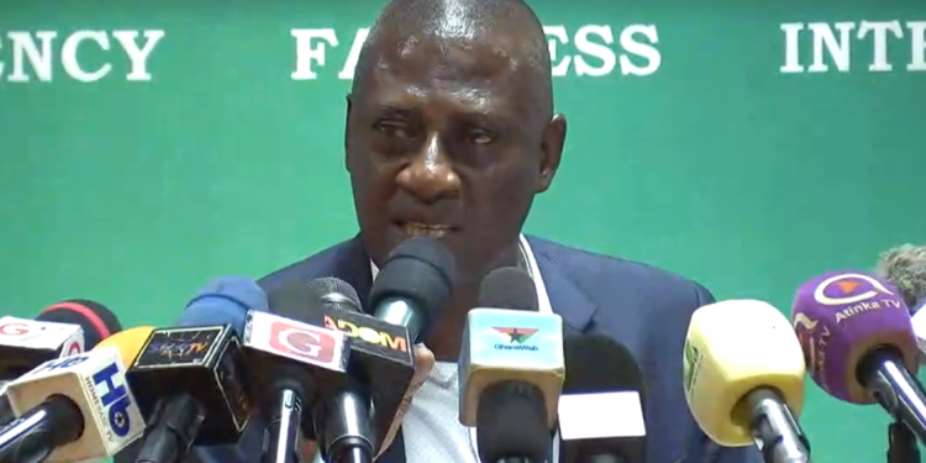An amount of Gh¢2 million was spent in repairing some faulty biometric devices prior to the December 17 district-level elections held on December 17, 2019.
This was disclosed by the Deputy Chairman in-charge of Operations at the Electoral Commission, Samuel Tettey on Tuesday, December 31, 2019, as the Commission continues to make a strong case for the compilation of a new voters’ register for the 2020 polls.
In a media encounter, Mr. Samuel Tettey noted that most of the biometric devices were faulty and had to be repaired prior to the district level election.
“Quite a significant number of the BVDs and the BVRs cannot be repaired. For the recently ended District Level Elections (DLE), the Commission had to refurbish and repair them to get them ready for the DLE. This was a labour intensive and expensive process that spanned through several months from May 2019 to December 2019 with the Commission having to hire additional hands to get the devices ready for the DLE. The Commission spent close to Two Million Ghana Cedis just for the refurbishment of the BVDs and BVRs ahead of the DLE,” he said.
In its quest to prudently replace the kits with new ones of high improved technology, the Commission also makes the claim that the cost of repairing the old devices is much higher than actually getting a new register.
“The proposal received from the immediate past vendor to have them replaced was several times more expensive than getting a commercial off the shelf solution of similar capacity and functionality. The total cost of maintaining the existing devices and buying additional ones from the immediate past vendor is higher than acquiring newer equipment with better software and improved scanners.”
The EC has rubbished claims that it is wasting state resources in its quest to compile a new voters' register and procuring a biometric system.
It says it is committed to judiciously spending the about GH¢400 million it requested from the government to be spent on the process.
The amount will be expended mainly on procuring electoral materials as well as recruitment of election officials for all polling stations across the country.
“The expenses related to the cost of hiring registration officials and procurement of consumable registration materials. It is worth mentioning that the current administration of the commission is committed to judicious use of state resources for electoral activities,” he said.
He suggested that the about GH¢400 million planned to be used for the new register and electoral process will be a prudent expenditure compared to previous expenses for similar exercises.
“The cost of the 2012 voter registration was GH¢169,720,146 that of 2014/2015 supplementary registration also cost the commission GH¢287,559,379. In 2016, the revision of the voter's registration was GH¢487,998,714 and it is also important to note that the compilation of a new voter's register in 2020 is estimated to cost GH¢390,265,186.44 and that is what we are referring to here.”
—citinewsroom





 We’ll no longer tolerate your empty, unwarranted attacks – TUC blasts Prof Adei
We’ll no longer tolerate your empty, unwarranted attacks – TUC blasts Prof Adei
 Bawumia donates GHc200,000 to support Madina fire victims
Bawumia donates GHc200,000 to support Madina fire victims
 IMF to disburse US$360million third tranche to Ghana without creditors MoU
IMF to disburse US$360million third tranche to Ghana without creditors MoU
 Truck owner share insights into train collision incident
Truck owner share insights into train collision incident
 Paramount chief of Bassare Traditional Area passes on
Paramount chief of Bassare Traditional Area passes on
 Two teachers in court over alleged illegal possession of BECE papers
Two teachers in court over alleged illegal possession of BECE papers
 Sunyani: Victim allegedly shot by traditional warriors appeals for justice
Sunyani: Victim allegedly shot by traditional warriors appeals for justice
 Mahama vows to scrap teacher licensure exams, review Free SHS policy
Mahama vows to scrap teacher licensure exams, review Free SHS policy
 Government will replace burnt Madina shops with a new three-story, 120-store fac...
Government will replace burnt Madina shops with a new three-story, 120-store fac...
